
Volume VII/Issue 3/June 2022


From The Editorial Desk
Sovereignty Over our Bodies – How Far Will We Go?
Our discussion began when a young man I met asked me “Are you prepared for the onslaught of the liberal pressures of humanism? Are you resisting the waves of how man is manipulating his own body for his goals?”
I wasn’t sure I really understood what he was talking about. So I waited while he rooted through his bag and found a magazine. He held it out to me, and I began to read...
“Humanity 4.5. The distinctly transhumanist horizon comes about when our project of mastery turns its attention to our own bodies.
They come to be treated as raw material, resources available to satisfy our free individual preferences. Our will to transcend nature through projects of mastery mounts a rebellion against the natural constraints of the organic human body, harnessing the power of technological innovations to render it the instrument of our arbitrary will. Why should we tolerate bondage to our frail flesh when we can split atoms and destroy cities?
From the low-tech mania for tattooing and piercing, through the medium-tech tools of abortion, hormonal birth-control, and transgendering, to the high-tech visions and explorations of genetic engineering and cyborgism, this rebellion seems to be gathering steam. An aggressive assertion of bodily self-ownership is becoming the new normal, with the status of a fundamental right.
Politically speaking, the assertion of individual self-ownership is a central feature of libertarianism. The transhumanism of Humanity 4.5 is thus an extreme expression of the libertarianism that is spreading through American society...1”
I have gone back to re-read and ponder these words. I never did give him a firm answer to his question. Have we really thought through the implications of choosing to use our bodies as “raw material”? Of acting like we are the owners and God is a bystander in the sanctity of life?
This editorial is a consideration of some of the issues that libertarianism is promoting. How will these issues filter down to us?
Can we believe as Christians we have power over our own bodies and then only choose the good? Or will we choose to believe that all forms of selective sovereignty are wrong?
The Slippery Slope is slippery because everyday life hands us many difficult situations. Some families have too many children. Other couples are barren. Life doesn’t seem fair. We are tempted to think, “Here is a problem that God is not addressing and we have a reasonable solution.” Even men of faith wrestle with this mental journey. We all remember Abram in his struggle with the promise of a son and innumerable descendants. The reality was the years were passing by with no solution. Then Sarai presented a solution. It all seemed so simple. What can be wrong to choose to have a child on your own terms? Wasn’t the goal to help God fulfill His promise? But was this God’s plan? Did He need their help? Was the choice that brought Ishmael into the world an act of faith or an act of unbelief?
From our perspective, generations later, we see the mask the tempter was wearing. We see the difficult reaping they experienced in their generation and in generations to come. But do we even recognize these same patterns when they arise in our lives?
Now we seem to have a host of “Sarai” answers. As in the days of the tower of Babel, men are banding together for what they can accomplish without regard to the fear of God. When men join their ideas, they achieve accomplishments that go far beyond what isolated individuals could achieve.
Add to this the theory of evolution. In 1859, just before the beginning of the American Civil War, Charles Darwin advanced the theory of that life began by random natural processes. This theory has paved the way for mankind to live without godly perimeters. By eradicating Creation from our history, scientists have also eradicated the Creator’s directives from our lives. One of the most Sovereign activities of the Creator was creating life. Now we too can claim ownership to that.
Mankind wishes to free the creation of life from its original boundaries. Today we have a plethora of choices regarding this most holy and sacred miracle. For decades science has opened the door for preventing conception or eliminating life before birth. Now science is opening the door to bringing forth life in situations not formerly possible.
One line of logic is if we can use science to prevent life, certainly we can use science to help bring forth life. But maybe it is time for us to go back and reexamine the liberties we have taken. If we selectively choose to remove any of our Creator’s principles in order to hinder or create life, are we not helping to open the door to the experimentation which seems to have no barriers? It is true, some of these practices shock us by their blatant disregard for the Creator.
But others come sneaking in, appearing innocent and innocuous. But wouldn’t we have to admit they all are linked by a common element – that man has sovereignty over life?
A strong case can be made that man is deliberately usurping from God the right to tamper with human life. So let us look how this issue can be viewed in practical ways.
Mankind has long practiced abortion, the murder of unborn children. The Churches understanding is that life begins at conception, and we have sensed that abortion is a desensitized murder. The Bible plainly teaches that murderers will not go to heaven (1Jo 3:15, Rev 21:8).
But have we understood that the present day pill accomplishes some of its effectiveness through its abortive qualities? Isn’t it astounding how the mask of a pill can make this form of murder appear so innocent? Think about it, “Can the driving motivation of having a desire to escape the burden of bearing children be the heartbeat of our Creator?”
Euthanasia of non-sentient deformed beings.
There is increasing pressure to relieve society of the burden of children with birth defects. Here is a recent quote from biologist Jerry Coyne “If you are allowed to abort a fetus that has a severe genetic defect, microcephaly, spina bifida, or so on, then why aren’t you able to euthanize that same fetus just after it’s born?...I see no substantive difference that would make the former act moral and the latter immoral,” he said. “After all, newborn babies aren’t aware of death, aren’t nearly as sentient as an older child or adult, and have no rational faculties to make judgments (and if there’s severe mental disability, would never develop such faculties)...The reason we don’t allow euthanasia of newborns is because humans are seen as special, and I think this comes from religion—in particular, the view that humans, unlike animals, are endowed with a soul. It’s the same mindset that, in many places, won’t allow abortion of fetuses that have severe deformities. When religion vanishes, as it will, so will much of the opposition to both adult and newborn euthanasia.1”
Artificial insemination.
If a barren woman is barren because she is married to an infertile man, by choosing artificial insemination she may still enjoy the benefits of motherhood and family without committing adultery. She doesn’t need to know the father and yet may have some say as to what the genetic code of the child will be. Best of all she has reason to believe her own genetics and personality will in some way blossom forth in the child that is to be.
Another advantage of this is that there does not need to be an adoption process. By this process, even single women may have a household of children of their own by simply experiencing as many pregnancies as they choose. But is this process within our Creator’s plan for bringing forth life?
In-vitro-fertilization and embryo adoption.
This process is more complicated. There needs to be a formal adoption. The genetic code is going to very much be a surprise package. But again, a barren woman or an unmarried single may have a child; or an entire family if so desired. A couple may experience the joys of parenting in ways not formerly possible. And one can rescue a life doomed to live and die without a physical existence. But what is our Creator’s view of this? Is He still involved in giving of life in the way He designed? Can this be within His plan?
Same sex marriages and one flesh unions. Our society flaunts their freedom of lifestyle, in the lesbian, gay, bi-sexual and trans-gender unions. Many of the depravities described in the epistles (Rom 1:26-28) that we as an older generation thought we would never witness are becoming supposedly acceptable. Even more astounding is that those of us who hold to Biblical/Christian values are represented as bigoted, intolerant and therefore uncharitable! And of course a union which formerly was bound to be destitute of children may now have their own offspring. We know this is an abomination unto the Lord; it has been from creation and will be until the close of time (1Co 6:9-11).
The sobering question we as American Christians must face is, “Has our choice to manipulate God’s command to “be fruitful and multiply” and relieve or lessen this responsibility from the “one flesh” calling muted our witness or contributed to other’s boldness to manipulate Creation principles for their desires?” Need we elaborate on this? For several generations already, many Catholics have decided that parents have the liberty to decide if and when they wish to have another child. We call it “family planning” when it is clear the planning is all about not having a family the way God would have it, but one according to one’s own preferences.
The Solid Foundation.
Our Creator designed a special plan for procreation of the human race. Will we be courageous enough to “marry” His plan and submit to the outcome? Let us ponder the implications of His plan and His early commands to mankind.
Our Creator’s repeated command to mankind to “be fruitful and multiply” (Gen 1:22, 8:7, 9:1) is intricately related to His directive that the married couple “shall be one flesh” (Gen 2:24). Can we not see that to separate these two is stepping outside His Divine purposes? God intends for the married man and woman to come together in physical union and intimacy (1Co 7:5) and for them to bring forth (birth), and parent the children conceived in this union (Mal 2:14-16).
Is He pleased with human “improvements” (which are really nothing but interference) with His plan?
As disciples of Jesus Christ – He who restored mankind to the Creation order (Matt 19:4-6) – we too must be committed to these twin principles of God’s plan. In other words, we recognize it is going against the Divine plan to form a “one flesh” union outside of marriage (1Co 6:15-17) or to refuse the “one flesh” union in marriage (1Co 7:5). Furthermore it is contradicting Divine will to prevent the “...fruitful and multiply...” heritage (Psa 127:3) that results from such a union. God has planned that the marriage union of one flesh and being fruitful and multiplying are expressions of His ongoing creation of the Human family.
Bible teaching reveals that God is intimately involved in the formation of each child who is conceived, in both personality and physical features (Psa 139:13-17). Furthermore He promises to personally bless and enable each of the offspring who are conceived in His plan (Isa 44:2-5).
In recognition of these facts, we wish to reaffirm the following positions.
We believe God opposes all same sex unions that are supposedly called marriage. Also we believe God opposes all transposing of gender after conception. These innovations are clearly outside our Creator’s purposes.
We believe that it is God’s will for the “one flesh” union of husband and wife to produce children. Along with this we believe God’s will is contradicted in efforts to deliberately prevent conception and/or the termination of the life of the unborn child in the name of “family planning”. We recognize and submit to God’s sovereignty over the generations of men and understand that He holds the keys of life.
We believe God opposes all efforts to artificially conceive life or bring to birth through implantation of life outside the one flesh union of the marriage bed.
We understand our Creator made a distinction between human life and animal life. Mankind is given dominion over the animals (Gen 1:26,28). There is conspicuous lack of any such privilege/responsibility of mankind being given dominion over human life. The only exception is when governmental authorities exercise capital punishment to punish the murderer (Gen 9:5-6).
We support the concept that the barren and unmarried will bring forth a fruitful life by accepting God’s will and purposes for them with the opportunities He places in their hands (Psa 113:9).
Let us be as the brother whose eyes were opened to the sovereignty of God in the sanctity of life when he read the verses from Deuteronomy. “See ye that I alone am, and there is no other god besides me: I will kill and I will make to live: I will strike, and I will heal, and there is none that can deliver out of my hand. ” (Deu 32:39)”
We all know the worldly Christian and unbeliever will scoff at these principles. “They profess that they know God: but in their works they deny him; being abominable, and incredulous, and to every good work reprobate.” (Tit 1:16). But let us who have a legacy of faith be among the heroes of faith from other generations and rise to the challenges of our day. Let us choose to permit God to be God in our family choices. Then we can give a solid affirmation when questioned as to our beliefs about God’s sovereignty over life.
“Know you not, that your members are the temple of the Holy Ghost, who is in you, whom you have from God; and you are not your own? For you are bought with a great price. Therefore glorify God in your body, and in your spirit, which are God's.” (1Co 6:19-20)
Footnotes:
First Things November 2015 Issue Written by Mark Shiffman
https://whyevolutionistrue.wordpress.com/2017/07/13/should-one-be-allowe...

Making Love Is Not Loving
Those engaging in sex outside of marriage, often call it making love, instead of what it really is, fornication, adultery, etc.
There is a song, which asks: 'What Is Love?' Do we truly understand what love really is? This couple we are considering believes that they are in love with each other and that they are making love to each other, but they are not married. If we ask one of the people, they will insist that they love theother person, but do they really?
True love wants what is truly best for those we love. According to Sacred Scripture, we should love everyone, including our enemies. "But I say to you, Love your enemies: do good to them that hate you: and pray for them that persecute and calumniate you: That you may be the children of your Father who is in heaven, who maketh his sun to rise upon the good, and bad, and raineth upon the just and the unjust." (Matthew 5:44-45)
And so what is best for someone? Let us consider that the best thing for everyone is salvation. "For this is the will of God, your sanctification;" (I Thessalonians 4:3) We want everyone to go to heaven. Love will therefore put forth its best effort to help others to get to heaven. And so let us return to our loving couple and determine is what they call making love is truly loving:
-
First of all fornication is a sin. "For this is the will of God, your sanctification; that you should abstain from fornication;" (I Thessalonians 4:3) Sin is an obstacle to salvation. "For the wages of sin is death." (Romans 6:23) Therefore this is not love, but actually hateful. To desire someone to sin is actually not loving, but hating that person.
-
Let us say that a child is conceived. This child, instead of coming into a loving family with a mother and father who are married, comes into a broken situation, which is based on false principles. And so this potential child is not loved either.
-
Of course, the matter could be worse. Let us say one or both parties are married to someone else. This act is a violation of their spouse(s) rights in a most profound way. And so they are not being loved either. "The wife hath not power of her own body, but the husband. And in like manner the husband also hath not power of his own body, but the wife." (1 Corinthians 7:4) This faculty is not even ours to use as we please, but belongs to God. We are able to give this power over to our spouse in marriage, but it is still not ours to use as we please.
As we can see the world has a false idea of love. True love desires the salvation of all. "Who will have all men to be saved, and to come to the knowledge of the truth." (1 Timothy 2:4) The world seeks to mask the true evil of sin in polite sounding words. Instead of call this what it is, fornication, the world calls this making love, which sounds much better to people. However, when we accept the world’s thinking, we distort basic values, such as what love truly is. With this false foundation we find that we will make horrible decisions.
"And be not conformed to this world; but be reformed in the newness of your mind, that you may prove what is the good, and the acceptable, and the perfect will of God." (Romans 12:2) We must step away from worldly thinking and step into spiritual thinking. We do this by spending a notable amount of time in Sacred Scripture, the Fathers of the Church, the Saints, etc. We need to immerse our self in truth and call things what they truly are. When we sugar coat things we are usually trying to hide ourselves from our own sins. The world and the devil are happy to help us in this falsehood.
And so let us be accurate and pure in our thinking and speech. Let us not allow the world to falsify anything.

Are You Real?
Recently Facebook announced their corporate name change from Facebook to Meta. Meta comes from their vision of the future, a Metaverse. What is this Metaverse they are referring to? It is the current Facebook on steroids. Currently, people post on Facebook about themselves, what they are doing, and what they want others to see in their lives. In the Metaverse, you will create a virtual world to live in and interact with other people. You can have different personas depending on whom you relate to: work for your work connections, gaming for your gaming buddies, social for when you hang out with people, and lots more. You can customize yourself and your surroundings in each persona. You can be in classy clothes in an elegant home, you can be a cartoon version, or you can look however you want to. The initial impression is that it is coming straight out of a Sci-Fi movie, but Facebook is determined to bring it to the masses. You can now create and live in your universe; however you want to.
As a Christian, you will recognize many potential issues with this new world. I only intend to focus on one of them in this article. What happens when you live in a world that is not real? What happens when you make up your own world? What if you are not real?
When you stop and think about people creating their fake world to live in and inviting other people into, there are numerous major issues that we can see. As Christians, we can see the dangers of doing that and realize the wisdom of never getting started in the new Metaverse as it becomes a reality. But this may be a little closer to home than we want to admit.
Are we real with God?
Most of us probably know who Queen Elizabeth is and would recognize her when we see a picture of her, but I doubt anyone of us knows her. Is that how God is to us? Is He someone out there that we know exists, but we do not have a close relationship with Him? Or is He so real to us that if He would “go away,” we would miss Him? Do we tell Him everything about our life, or are there areas that we would rather not discuss with Him because we do not want to hear what He would have to say? Is He so real to us that we naturally discuss all our life with Him without reservation, and He has a profound impact on how we live?
Are we real with ourselves?
Are we telling ourselves the truth about the life we are living? Do we make excuses for the way that we are living? When we evaluate other people versus ourselves, we often have two different standards. We are harder on other people than we are on ourselves. Other people have a fantasy world they live in their heads instead of focusing on being a blessing in the real world. Sometimes we get too busy with life, and we lose touch with our hearts and do not stop to evaluate who we are inside. That is when we start to live a different life than we know in our hearts that we should live or want to live.
Are we real with others?
We all fall prey to this at times in our lives. Are we living a secret life in our hearts that we do not want others to see? Are we hiding sin on the inside while trying to live a righteous life on the outside? Even closer to home, how often do we say one thing while believing another in our hearts because it is more convenient? When other people talk about us, do they comment that we are genuine because they can see we mean what we say and live what we say, or do they feel like they cannot tell who we are?
The more real God is to us, the more real we will be with other people. The more we hide from God, the more we will hide from ourselves and others. The two go hand in hand, and you cannot separate them. Too often, we go through life crafting an external image of who we want others to think we are, when down inside, we are something different. In reality, that is worse than creating your universe on Facebook because you are still living a lie and deceiving yourself.
That which we have seen and have heard, we declare unto you, that you also may have fellowship with us, and truly our fellowship is with the Father, and with his Son Jesus Christ. (1Jo 1:3).
Let us hear the conclusion of the whole matter: Fear God and keep his commandments: for this is the whole duty of man. For God shall bring every work into judgment, with every secret thing, whether it be good, or whether it be evil (Ecc 12:14). God desires a close relationship with us, so close and real that it has a profound effect on our lives. That relationship will create a deep awe of Him that will drive us to obey His commandments. Then when God does bring every work into judgment, we will not have anything to fear because He will be telling the world about the faithful life we lived for Him instead of the sins that we tried to hide from the world.
Are you real, or are you fake?

On Holy Eucharist
Eucharist as Presence vs. Absence
Eucharist as Unity vs. Division
Eucharist as Sacrifice vs. egocentrism
Presence
In the Holy Sacrifice of the Mass, the Lord has fulfilled His promise, " I am with you always until the end of time. " ( Matthew 28 ). Through the power of the Holy Spirit, the holy bread turns into the body of Christ in the words of consecration, " Hoc est enim Corpus Meum." and the wine turns into the blood of Christ in the words of consecration, " Hic est enim calix sanguinis mei..."
Before the concept of the transubstantiation was introduced by St. Thomas Aquinas in 13th century, the faith of the Holy Catholic and Apostolic Church was the bread and wine become the body and blood of Jesus Christ because Jesus Christ said so. "This is my body. " "This is my blood.", no scientific or philosophical explanation necessary. It is sufficient to believe because the Lord said so. As the maxim goes, for a man who has faith, no explanation is necessary, for a man who has no faith, no explanation is possible. It's only during the period of rationalism the transubstantiation came into existence.
Now that Jesus Christ is really present in the most holy sacrament, we may ask ourselves, are we present for Him? or are we absent due to busyness in this hurly burly world?
Unity
"Pater ut sint unum. ""Father, that they may be one. "(John 17:21). That is the very prayer our Lord Jesus Christ uttered in Gethsemanie. Unity for all His disciples and disciples to be. That is the prayer Jesus Christ prayed right after the last supper. It follows therefore that the Holy Eucharist as a memorial of passion and death of our Lord should lead us to unity, one Lord, one shepherd. However, division is a reality which is taking place in our society at large. We are divided Christendom. A big scandal indeed. Christians are hating each other instead of loving each other. "Love one another as i have loved you. " commanded by our Lord.
Sacrifice
The Holy Mass is the unbloody sacrifice offered to God yet during the time of Protestant reformation period the word sacrifice was abolished. Martin Luther said, "call it a memorial, a meal but never call it a sacrifice. " When Vatican II entered in 1965, the sacrificial nature of the Holy Mass was destroyed by the revolutionary Novus Ordo Missae. The Holy Mass now becomes a celebration and never a sacrifice. Hence, from 1965 onwards there is a thirst for the entire globe to go back to Tridentine Latin Mass. Because Novus Ordo Missae is not Catholic and it doesn't represent the Catholic faith.
With the advent of industrial revolution, consumerism has lead the world into pleasure seeking mentality. Good life means possession of gadgets. Good life means getting rich. Many are afraid of getting Covid19 but not afraid of losing one's soul by sinning. The sacrifice of laying down one's life is no longer popular. The rule survival of the fittest is the rule of thumb in this modern world.
May our participation in the Holy Mass would mold us into the likeness of Jesus Christ.
 The Challenge and Joy of Pentecost
The Challenge and Joy of Pentecost
My dear friends in our Lord: Glory to Jesus Christ!
In the Gospel we hear:
On the last, and great day of the festivity, Jesus stood and cried, saying: If any man thirst, let him come to Me, and drink. He that believeth in Me, as the scripture saith, Out of his belly shall flow rivers of living water. Now this He said of the Spirit which they should receive, who believed in Him: for as yet the Spirit was not given, because Jesus was not yet glorified.
“On the last, and great day of the festivity.” The Jews, of course, were accustomed to celebrate three great feasts: the feast of Pascha, in commemoration of their liberation and exodus from Egypt; the feast of the erection of the Tabernacle, called “sukkoth” - at this feast they used to dwell in huts, called booths or tabernacles, just as they had done for forty years in the Wilderness; and the feast of Pentecost, in commemoration of the reception of the Law and the entry into the Promised Land when they first tasted the fruits of its wheat, wine, and other crops.
In the wilderness they had eaten of bread which was not the product of sowing seed and cultivation, but which fell from heaven, (and now) they brought sheaves from the fields to the feast; therefore, it was called the feast of first-fruits and of sheaves. The Jews counted seven weeks after Pascha, and then they observed the feast of sheaves, which is Pentecost, because after crossing the Red Sea and passing fifty days, they were given the Law by God. Thus, as it is said, they would all gather at the Temple for these three feasts. The Law commanded them to come together in this manner, that they might recall the great and divine gifts of God, and be joined one to another in love and unity. On these feasts our Lord Jesus Christ was seen to join with them and celebrate, since He is the Giver of the Law, and that He might attract many by His signs and teachings.
Standing up, our God Jesus Christ called out, saying, If any man thirst, let him come unto Me, and drink. Christ draws no man by force or compulsion, but calls anyone who has the desire, and offers to give him drink; the unwilling man Christ neither constrains nor coerces. If any man thirst, let him come unto Me, and drink. He is the Wisdom and Power of God, He is the eternal and ever-existent Word of the Father, Who stands even today, now, just as He did then and calls the thirsty to drink. Let us taste (thereof), then, brethren, let us taste and see and know that the Lord is good; He is an inexhaustible fount of goodness and immortality; He is living, fresh, flowing water, which is abundantly poured forth and overflowing.
Whosoever drinketh of this water shall never thirst. Rightly has Scripture said that out of the belly of a believer shall flow living water, says our Lord, referring to spiritual instruction which waters the souls of those who listen to it. He calls the greatly abundant gift of grace water, as being ever-active. Living Water is a drop of Christ's teaching, which, like water, cleanses the filth of sin, quenches the flame of passions, and cures unbelief, dryness and barrenness. Living water is the grace of the Holy Spirit, which is given diverse names according to the diversity of its operation. Here it is called water, but elsewhere fire. It is called water because just as water comes down from the sky, nourishes and refreshes; so also the Holy Spirit descends from heaven and waters and feeds the soul; though He is one, He divides His grace and power among various operations. The Holy Spirit is also called fire, because just as fire is one in appearance, but acts in various ways, warming, burning, illuminating and cleansing, so it is with the Holy Spirit, In the words of the Apostle, There are diversities of graces, but the same Spirit; and there are diversities of ministries, but the same Lord; and there are diversities of operations, but the same God, Who worketh all in all.
This We see clearly in the case of the Apostles themselves. The Apostles were not afraid to teach and proclaim the word of God in various ways; they gave little mind to the threat – or reality – of persecution, the denunciations of spiritually blinded authorities, and the fury of enraged peoples. They made rivers of living water flow, (rivers) of instruction. Such was the grace of the Holy Spirit.
As Saint John says, “this He said of the Spirit which they should receive, who believed in Him: for as yet the Spirit was not given, because Jesus was not yet glorified.”
Before our Lord's Cross and Passion and Resurrection, we were not refashioned in that goodness which we had lost by our transgression. For from the beginning man was created incorruptible, but when he transgressed God's commandment, he was deprived of the Holy Spirit together with his other gifts. As the blessed Moses said, God formed the man of dust of the earth, and breathed upon his face the breath of life. But since man fell to death on account of his transgression, and lost his ancient honour, Christ restored him again and elevated him to his former dignity by breathing upon him. As the Creator, Lord, and Master of all, He wished to make all things new again; therefore, among other things He promised to give the disciples the Holy Spirit. This He did after His Resurrection, when He breathed on them, and saith unto them, Receive ye the Holy Spirit. Three times was the Spirit given the disciples by Christ: before the Crucifixion, in a very indefinite way; and after the Resurrection, when He breathed upon them, more clearly; but it was after His Ascension that He sent the Spirit substantially; or rather, the Holy Spirit Himself descended, completely enlightening and sanctifying them.
The Apostles, even before the Crucifixion, drove out demons and performed many healings by grace and the cooperation of the Holy Spirit. It was after the Resurrection, however, that the grace of the Holy Spirit was finally poured out in abundance, and not only did it affect the Apostles, but through them thousands and tens of thousands were filled with it.
Before the Crucifixion, though Christ did not give His disciples the Spirit, He gave them power against unclean spirits, to cast them out, and to heal all manner of sickness and all manner of disease. After His Crucifixion and Resurrection, however, He bestowed the Holy Spirit upon them, not so much for raising the dead or doing other such wonders, as for the remission of sins. As it is written, He breathed on them, and saith unto them, Receive ye the Holy Spirit: whosesoever sins ye remit, they are remitted unto them; and whosesoever sins ye retain, they are retained. Since we had sinned and rebelled against God, we were made His enemies; but the grace of the Holy Spirit is a gift, a gift freely given, and true gifts are given in friendship. Therefore, it was necessary first to offer a sacrifice for the sake of our reconciliation and the end of enmity — this was the immolation of the rational Lamb, the Death of Christ; and only afterwards was it fitting to confer the gift of grace. Then, after the Ascension, the grace of the Holy Spirit was poured forth in abundance.
Believers, who are purified by (Christ's) commandments, do not simply have some vague spiritual illumination and or human enlightenment, but that the Holy Spirit Himself abides in them; as it is written, I will dwell in them, and walk in them; and, The kingdom of God is within you. The glory of the Holy Spirit is called the kingdom of heaven, and the Holy Spirit makes His dwelling in us through faith. He that believeth on Me, as the Scripture hath said, out of his belly shall flow rivers of living water.
“Again therefore, Jesus spoke to them, saying: I am the light of the world: he that followeth Me, walketh not in darkness, but shall have the light of life.”
Since the Jews both high and low kept taking Him for a Galilean and referring to Him as a prophet at the best, a deceiver at the worst, Christ relieved them of such a mistaken opinion and such a false report, clearly showing them that He was not one of the prophets, as they thought, but Master of the whole world. I am the light of the world, He said. Not the light of Judaea or Galilee alone, but the light of all the world. Christ calls Himself the Light of the world, for in Him is indeed the light of the divine glory; He shines With the radiance of the understanding upon those who are spiritually purified. He enlightens those who are held in the darkness of ignorance. Christ is the Light, because He is the illuminator of souls which are being purified in word and life. If sin and ignorance are darkness, then certainly knowledge and life in God are light.
He that follows Him will not abide in error and sin, and will not walk in darkness, but in the light of life, of truth and justice. Who is he that follows Christ? He who is pious, who lives righteously, reverently and respectably, walking as in the day. Let us, then, brethren, live piously, righteously and blamelessly, and walk honourably, and follow the light of faith (and) of Christ's commandments; let us not dwell in the outer darkness of sin, wickedness and error; but let us have the light of eternal life.
Now that we have reached the day of Pentecost, and the Most Holy Spirit has been revealed in fiery tongues, we all bend our knees, being unable to bear such a vision; thus, also, we show that through the Holy Spirit we have learned the perfect worship of the Trinity. Let us bend our knees in purity of heart, and we adore the holy, life-giving and undivided Trinity, and let us all learn from the divine Scriptures: let us learn all things which are for our profit and for the salvation of our souls.

Can a silent, peaceful prayer be a criminal act?
This is the question facing the court as it considers the penalty that Rosa Lalor received when on a prayer walk during lock-down in 2021.
Rosa says, “I never thought that in a democratic country like the UK I would be arrested for a simple and solitary prayer walk. When I was walking outdoors, I was praying in the privacy of my own mind. What kind of society are we, when people can be arrested simply for peacefully manifesting their faith in public?”
Here’s what happened…
During the coronavirus lock-down last year, Rosa – a grandmother from Liverpool – was careful to follow the rules. She took a walk most days as part of her allotted exercise time. She walked alone, and even wore a non-mandatory mask for the activity, to be extra careful.
At 76, Rosa had never been a lawbreaker.
Until one day, on her daily walk, she was arrested.
While she was walking, Rosa had been praying. Silently. In the privacy of her own mind, with headphones in. She walked near an abortion facility, as she prayed about the issue that was on her mind. She was masked, socially distanced, and alone.
A police officer stopped her and asked why she was out of her house, at a time when reasons to be outside were very limited.
“I’m walking and praying,” she answered.
The officer said Rosa wasn’t praying in a place of worship. She didn’t have a “reasonable excuse” to be outdoors. She was there to “protest,” he later said.
“Caught” praying masked, alone and walking outside, Rosa was arrested, detained in a police car, fined, and charged under a temporary coronavirus regulatory measure that sought to ban activities on the street for the sake of public health.
Man Asks Deputies to Test His Meth— They Did!
Authorities in Hernando County, Florida, couldn’t believe their ears last [month] when one resident called 911 with undoubtedly one of the strangest requests they had ever received. ...An adult man called police dispatchers to request that deputies come to his Spring Hill home to “test the methamphetamine” he had recently purchased from his drug dealer, police said. ...[He] was apparently suspicious that his dealer had cheated him by selling him “fake” meth—and he was eager to see if his hypothesis was correct.... ...Deputies performed a field test on the samples and...[it] came back positive for meth. Deputies arrested...him...and...he is currently being held at a Hernando County Detention Center on a $7,000 bond.
Mississippi Bans CRT in Tax-Funded Schools
Another state has dealt proponents of critical race theory a blow in their effort to indoctrinate students at all levels.
Mississippi Governor Tate Reeves (R) has signed into law a bill that bans teaching critical race theory (CRT) in publicly funded institutions of learning. The bill was supported by the Mississippi Center for Public Policy—and Douglas Carswell, who serves as president of the Center, tells AFN [American Family News] why they backed it.
“We did a report in October that looked very carefully at what was being taught in Mississippi classrooms and in universities,” says Carswell, “and we found clear evidence that this extremist, divisive ideology is being promoted. It is being pushed.”
...According to Carswell, the Marxist-like ideology was found in every level of education in Mississippi’s educational community. “The Mississippi Department of Education specifically recommends that teachers in Mississippi use teaching resources that promote this extremist ideology,” Carswell continues. “We found evidence of courses in publicly funded universities in Mississippi where this dogma and this ideology are very prevalent.”
The new state law bars “students to affirm, or teachers to teach, that any sex, race, ethnicity, religion, color, or national origin is inherently superior or inferior.” It does not prevent the teaching of American history nor the history of the Civil Rights Movement.
USA Today Names Rachel Levine Among Its “Women of the Year”
Trans-identified Biden administration official, Dr. Rachel Levine, formerly known as Richard, has been named among USA Today’s “Women of the Year.”
The national publication included Levine, who serves as assistant secretary of health at the U.S. Department of Health, as one of its “Women of the Year.”...
Levine’s recognition among USA Today’s Women of the Year and inclusion on a panel featuring “women leaders” comes as the U.S. is engaged in a debate about whether recognizing men who identify as women puts biological females at an unfair disadvantage.
California’s First Openly “Transgender” Judge
The Los Angeles Times reported that Andi Murdyk will serve as a judge on the Sacramento County Superior Court after being appointed by Gavin Newsom to fill a vacancy left on the bench.... Murdyk [is] a biological male....
The transgender judge...
who transitioned in the last four years, said that he is proud of his gender identity....
The transgender attorney’s appointment to the bench earned praise from legal and leftwing activist communities.
Arizona Law Prohibits Discrimination Against Faith-Based Adoption, Foster Care Agencies
Arizona Governor Doug Ducey has signed a bill prohibiting discrimination against faith-based adoption and foster care organizations, including forcing them to place children in same-sex households when it goes against their religious beliefs.
...Senate Bill 1399...says the state government or anyone suing to enforce a law “may not take any discriminatory action against” a person or group that “declines to provide” adoption or foster care services due to “the person’s religious belief or exercise of religion.” Additionally, the new law says that public entities or private individuals “may not discriminate against a person” who has custody of an adopted child or foster child “on the basis that the person” plans to “raise a child in a manner consistent with the person’s religious belief or exercise of religion.”...
“Under SB 1399, Arizona’s faith-based adoption and foster care providers can continue to serve the state’s most vulnerable children in a manner consistent with the faith that inspires their service and unafraid of government discrimination,” [Alliance Defending Freedom Legal Counsel Greg Chafuen stated].
Federalist Editor Locked Out of Twitter for Calling Rachel Levine a Man
An editor with the conservative news publication the Federalist has been punished by Twitter because he called Rachel Levine, a Biden administration official who is biologically male but identifies as female, a man.
...The Federalist Senior Editor John Daniel Davidson has been locked out of his Twitter account over a tweet....
“They’re not even trying to hide it anymore,” posted Davidson. “If you say that Rachel Levine is a man, they will come after you. Doesn’t matter that Levine is in fact a man. Truth is no defense.”
According to the Federalist, less than 24 hours after Davidson tweeted this, Twitter censored the post and locked Davidson out of his account until he agrees to delete the tweet. Davidson has expressed his refusal to do so.

The Funny Pharmacy
A joyful mind maketh age flourishing: a sorrowful spirit drieth up the bones. - Proverbs 17:22



Frequently Asked Questions

What would you say proves your papal claimant as Pope of the Universal Church as valid?
The Catholic Church teaches that a heretic cannot become Pope any more than an unbaptized person or a woman. This is stated in the Papal Bull, Cum Ex Apostolatus Officio of Pope Paul IV in paragraph 6.
Diocesan Bishops as the Ecclesia Docens (Teaching Church) are held to a higher level in regard to doctrine. It is their duty to see to it that everything taught in their diocese is true Catholic doctrine. Canon Law gives them the right and duty to judge matters of heresy in their own diocese and to absolve from the excommunication for heresy. Therefore they are required to know Catholic teaching. If they commit the crime of heresy, they are presumed to have done so willingly. Therefore they are presumed to incur all of the penalties attached to heresy.
Heretics resign all offices they may hold in the Church and Canon Law accepts their resignation without need of any declaration on the part of a superior.
The Second Vatican Council taught heresy in several documents, including but not limited to the Decree on the Liturgy, the Decree on Ecumenism and the Decree on the Relation of the Church to Non-Christian Religions.
All but four bishops present voted for the Decree on the Liturgy. Also, unless they state otherwise, all of the bishops present are presumed to have signed all of the decrees of Vatican II. Such is an act of notorious public heresy. Therefore by the end of Vatican II, every bishop present had resigned his office by the commission of public heresy, including the Bishop of Rome, John the Baptist Montini, who had taken the name of Paul VI.
And thus, by the end of Vatican II there was only one Cardinal left, Cardinal Mindszenty, and no Pope. With the Papacy vacant, the Church needed a Pope. Mindszenty died in 1975, therefore the Church had no Cardinals to elect a Pope.
When the Church is without Cardinals, theologians and canonists teach that she must supply herself with a Pope in an extraordinary manner. This they teach is a matter of the Natural Law, since a perfect society always has the ability to supply itself with a ruler. The Church is a perfect society, so it is always possible to elect a Pope, here and now.
The first principle is that the first elected has the Papacy. This is known as first in time, first in right. Also nothing invalidates the election of a Pope, except the election of someone not qualified by Divine Law. Divine Law holds that the unbaptized, women and heretics cannot be elected as Pope. Ecclesiastical Law cannot regulate who may be elected Pope. Every attempt to issue such a law has been set aside by the election of someone not qualified. One such attempt was to limit election to the Cardinals. The electors set this aside by electing someone who was not a Cardinal. Fraud and even simony do not render an election of a Pope invalid.
A reasonable attempt must be made to summon the electors after an office becomes vacant. Those who appear on the day appointed are the electors. Even the absence of a majority of qualified electors does not render an election invalid as history proves.
Beginning in the early 1970's both the fact of the vacancy of the papacy and the necessity of electing a Pope was discussed by Catholics. On July 16, 1990 a group of Catholics assembled and elected David Bawden as Pope, who took the name of Pope Michael. This group made every effort possible to notify all those who might be qualified, including contacting each and every chapel listed as sedevacantist, meaning that they believed the papacy was vacant.
For answers to more frequently asked questions, click here: https://www.vaticaninexile.com/frequently_asked_questions.php
The Pope Speaks: June 2022
Vatican II Was the Goal

Many trace our problems today back to Vatican II. However, the problems, which led to Vatican II began over a century before it was held. It was the culmination of efforts by the enemies of the Church to infiltrate and neutralize the Church.
In the middle of the 19th century a document was discovered, The Permanent Instruction of the Alta Vendita. It was brought to the attention of Pope Pius IX. In the Permanent Instruction of the Alta Vendita, we read of two important points. First they want "a Pope according to our own wants."
"Now then, in order to secure to us a Pope in the manner required, it is necessary to fashion for that Pope a generation worthy of the reign of which we dream." How do you fashion such a generation? You must weaken each successive generation morally and spiritually. A Protestant observed around 1970: "Have you notice in church that what used to be a sin isn't a sin any more?" Two heresies arose, Liberalism and Modernism, which attacked not only Catholicism, but all that calls itself Christian.
The Permanent Instruction of the Alta Vendita also says: "Our final end is that of Voltaire and of the French Revolution, the destruction for ever of Catholicism and even of the Christian idea which, if left standing on the ruins of Rome, would be the resuscitation of Christianity later on."
In 1873 Father Delaporte wrote a book, The Devil, in which he said of The Enemy's plans: "Let us make no martyrs, but make vice popular among the masses." Let us remember who The Enemy is: "For our wrestling is not against flesh and blood; but against principalities and powers, against the rulers of the world of this darkness, against the spirits of wickedness in the high places." (Ephesians 6:12) However, The Enemy has enlisted men in his service here on earth, and The Enemy has a plan to bring about the damnation of all men, which is his perfidious goal. We will not go into details about this plan, except to point out a small part of it as it gives us direction spiritually how to combat this in our own hearts.
In 1888 Pope Leo XIII wrote an Encyclical, Libertas, against liberalism. He was addressing the false liberty being promoted by the world: "From this it is manifest that the eternal law of God is the sole standard and rule of human liberty, not only in each individual man, but also in the community and civil society which men constitute when united. Therefore, the true liberty of human society does not consist in every man doing what he pleases, for this would simply end in turmoil and confusion, and bring on the overthrow of the State; but rather in this, that through the injunctions of the civil law all may more easily conform to the prescriptions of the eternal law. Likewise, the liberty of those who are in authority does not consist in the power to lay unreasonable and capricious commands upon their subjects, which would equally be criminal and would lead to the ruin of the commonwealth; but the binding force of human laws is in this, that they are to be regarded as applications of the eternal law, and incapable of sanctioning anything which is not contained in the eternal law, as in the principle of all law."
Also in the late 1800's Father Felix Sarda Y Salvany wrote a book, Liberalism is a Sin, which was translated into English and published as What is Liberalism? What is Liberalism? states "He (the Liberal) may even go to Church and, stranger still, sometimes approach the Sacraments; but his maxim is, in the Church to live as a Christian, outside of the Church to live as the world lives, according to the times in which one is born and not obstinately to swim against the stream. He dies with the priest on one side, his infidel literature on the other and imagines that his Creator will applaud his breadth of mind."
In 1907 Pope Saint Pius X wrote the Encyclical, Pascendi, to refute the errors of the Modernists. He wrote: "It is one of the cleverest devices of the Modernists (as they are commonly and rightly called) to present their doctrines without order and systematic arrangement, in a scattered and disjointed manner, so as to make it appear as if their minds were in doubt or hesitation, whereas in reality they are quite fixed and steadfast." This method continues with the enemies of the Church to not present their case clearly. In fact, it is necessary to make things complicated in order to confuse and deceive people, as Jesus foretold: "For there shall arise false Christs and false prophets, and shall shew great signs and wonders, insomuch as to deceive (if possible) even the elect." (Matthew 24:24)
The matter of Moral Modernism has been discussed in a previous Pope Speaks, which is well worth a review. 1938 The Manual of Catholic Action tells us: "Hence even among Catholics the strange phenomenon of a double conscience often repeats itself-one conscience for private life, another for public life; religious at home and in church, unreligious (if not anti-religious) in public offices, and political and social life. The chief cause of this melancholy phenomenon was certainly liberal doctrine, which turned religion into a private affair, creating a double morality, and again, political and economic amoralism." 1
Pope Pius XII attempted to stem the tide towards the end of his reign, as he could see things slipping away. However, he was unsuccessful in his efforts and the Papacy was usurped in October of 1958 by Angelo Roncalli as the second Antipope John XXIII in history.
Roncalli called for the Second Ecumenical Council of the Vatican, which is a false name in and of itself. Like the Jansenist Synod of Pistoia, which it resembles in part, it was not a Catholic Council. The Enemy in order to deceive us called for a successor to the only real Vatican Council (1869-70).
In the early 1960's Maurice Pinay (a pen name) wrote a book, Plot Against the Church detailing part of the conspiracy against the Catholic Church. This work was delivered to every Bishop at Vatican II as a warning about what these people feared would happen at Vatican II and indeed did happen. In his book, Les Principe des Theologie Catholique, Joseph Ratzinger states: "Let us content ourselves here with stating that the text [of the Vatican II Constitution, Gaudium et spes] plays the role of a counter-Syllabus to the measure that it represents an attempt to officially reconcile the Church with the world as it had become after 1789." Basically Vatican II established new doctrine for a new church to be established in its spirit with a new liturgy, which was foisted upon the church they were changing.
This author saw a letter from Antonio Gonzalez Flores of Trenton in Mexico, where he wrote: "I am Maurice Pinay." Flores was associated with Father Saenz among others.
And so we conclude that Vatican II was the goal of The Enemy and should be considered more of the end rather than the beginning. It took a century of corruption of spirituality, morality and even common sense among those who called themselves Catholic in the century prior to Vatican II. Let us remember that 1950's Catholicism led to 1960's apostasy at Vatican II. In fact we could expand this to say that Twentieth Century Catholicism led to the apostasy at and after Vatican II. If we do not understand that the Church was being undermined by her enemies and that many lukewarm Catholics were unwitting assistants of these same enemies, we will never understand the solution. As several saints observed, they only feared bad Catholics. Vatican II is the fruit of lax, lukewarm Catholicism over the century prior to it opening.
1 A Manual of Catholic Action, pages 26-7


St. Francis de Sales' Introduction to the Devout Life
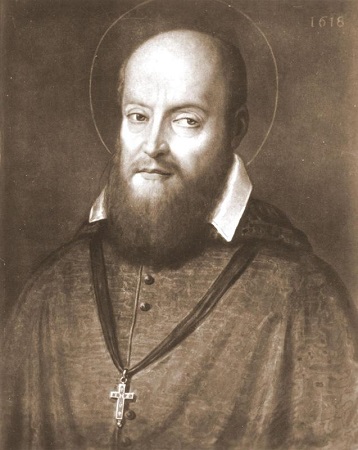
CHAPTER IV
The Need of a Guide for Those Who Would Enter Upon and Advance in the Devout Life.
When Tobias was bidden to go to Rages, he was willing to obey his father, but he objected that he knew not the way;--to which Tobit answered, "Seek thee a man which may go with thee:" and even so, daughter, I say to you, If you would really tread the paths of the devout life, seek some holy man to guide and conduct you. This is the precept of precepts, says the devout Avila, seek as you will you can never so surely discover God's Will as through the channel of humble obedience so universally taught and practiced by all the Saints of olden time. When the blessed Teresa read of the great penances performed by Catherine of Cordova, she desired exceedingly to imitate them, contrary to the mind of her Confessor, who forbade her to do the like, and she was tempted to disobey him therein. Then God spoke to Teresa, saying, "My child, thou art on a good and safe road: true, thou seest all this penance, but verily I esteem thy obedience as a yet greater virtue:" and thenceforth Saint Teresa so greatly loved the virtue of obedience, that in addition to that due to her superiors, she took a vow of special obedience to a pious ecclesiastic, pledging herself to follow his direction and guidance, which proved an inexpressible help to her. And even so before and after her many pious souls have subjected their will to God's ministers in order the better to submit themselves to Him, a practice much commended by Saint Catherine of Sienna in her Dialogues. The devout Princess Saint Elisabeth gave an unlimited obedience to the venerable Conrad; and one of the parting counsels given by Saint Louis to his son ere he died was, "Confess thyself often, choose a single-minded, worthy confessor, who is able wisely to teach thee how to do that which is needful for thee." "A faithful friend," we are told in Holy Scripture, "is a strong defense, and he that hath found such an one hath found a treasure;" and again: "A faithful friend is the medicine of life; and they that fear the Lord shall find him." These sacred words have chiefly reference, as you see, to the immortal life, with a view to which we specially need a faithful friend, who will guide us by his counsel and advice, thereby guarding us against the deceits and snares of the Evil One: he will be as a storehouse of wisdom to us in our sorrows, trials and falls; he will be as a healing balm to stay and soothe our heart in the time of spiritual sickness, he will shield us from evil, and confirm that which is good in us, and when we fall through infirmity, he will avert the deadly nature of the evil, and raise us up again.
But who can find such a friend? The Wise Man answers: "He that feareth the Lord:" that is to say, the truly humble soul which earnestly desires to advance in the spiritual life. So, daughter, inasmuch as it concerns you so closely to set forth on this devout journey under good guidance, do you pray most earnestly to God to supply you with a guide after His Own Heart, and never doubt but that He will grant you one who is wise and faithful, even should He send you an angel from Heaven, as He sent to Tobias.
In truth, your spiritual guide should always be as a heaven-sent angel to you; by which I mean that when you have found him, you are not to look upon him, or trust in him or his wisdom as an ordinary man; but you must look to God, Who will help you and speak to you through this man, putting into his heart and mouth that which is needful to you; so that you ought to hearken as though he were an angel come down from Heaven to lead you thither. Deal with him in all sincerity and faithfulness, and with open heart; manifesting alike your good and your evil, without pretense or dissimulation. Thus your good will be examined and confirmed, and your evil corrected and remedied; you will be soothed and strengthened in trouble, moderated and regulated in prosperity. Give your guide a hearty confidence mingled with sacred reverence, so that reverence in no way shall hinder your confidence, and confidence nowise lessen your reverence: trust him with the respect of a daughter for her father; respect him with the confidence of a son in his mother. In a word, such a friendship should be strong and sweet; altogether holy, sacred, divine and spiritual. And with such an aim, choose one among a thousand, Avila says; - and I say among ten thousand, for there are fewer than one would think capable of this office. He must needs be full of love, of wisdom and of discretion; for if either of these three be wanting there is danger. But once more I say, ask such help of God, and when you have found it, bless His Holy Name; be steadfast, seek no more, but go on simply, humbly and trustfully, for you are safe to make a prosperous journey.
Saints from East and West
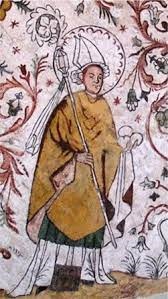
12 June - Saint Eskil (c. A.D. 1080).
The name of Saint Eskil does not appear in the Roman Martyrology, but until the Reformation he was honoured in northern Europe as one of the most illustrious martyrs of Scandinavia.
He was said to be English, a kinsman of Saint Sigfrid, whom he accompanied on his mission to reconvert Sweden which had almost entirely lapsed into paganism since the death of Saint Anskar, its first apostle, in the ninth century. He was consecrated bishop at Strängnäs, and from that circumstance later writers have described him as bishop of Strängnäs; but the see was not founded until 1245, and Eskil was probably a regionary bishop.
He laboured with success in Sodermanland, making many converts during the reign of King Inge, who encouraged and supported the missionaries. Inge, however, was murdered, and under Sweyn the Bloody a pagan reaction set in.
A great heathen festival was held at Strängnäs which was attended by many who had professed to be Christians. Saint Eskil hastened to the assembly and appealed to the people to abandon their pagan rites. Finding them deaf to his remonstrances he is said to have appealed to God to give a visible sign that He alone was the true God. Instantly a violent storm arose which destroyed the altar and its sacrifice, while sparing the bishop and his attendants. The pagans ascribed this wonder to magic and by the king's orders they stoned the saint to death. The place where his body was laid in 1082 is called after him, Eskilstuna.
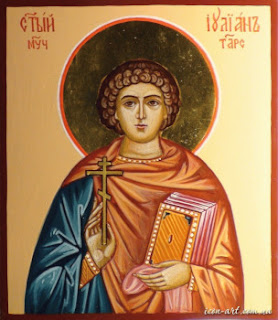
21 June - Saint Julian of Tarsus.
The Holy Martyr Julian of Tarsus was born in the Asia Minor province of Cilicia. He was the son of a pagan senator, but his mother confessed Christianity. After the death of her husband, the mother of Saint Julian resettled to Tarsis, where the son was baptised and raised in Christian piety. When Julian reached age 18, a persecution against Christians started under the emperor Diocletian (284-305). Among others arrested was also Saint Julian. They brought him before the governor Marcian for trial, where for a long time they urged him to renounce Christ. Neither tortures nor threats, nor promises of gifts and honours could convince the pious youth to offer pagan sacrifice and a denial of Christ. The holy confessor remained steadfast in his firm faith. For a whole year they led the martyr through the cities of Cilicia, in each of them subjecting him to interrogation and tortures, after which they threw him in prison. The mother of Saint Julian followed after her son and prayed that the Lord would strengthen him yet more in faith and act. In the city of Aegea under the pretext of urging her son to offer sacrifice to idols, she besought the governor to permit her to visit the prison. She spent three days in prison with Saint Julian, beseeching him to be strong to the end.
Saint Julian was again brought to stand before the governor. Thinking that the mother had persuaded her son to submit to the imperial decree, the governor began to praise her prudence. But suddenly the saint boldly confessed himself a Christian. And the holy Martyr Julian all the more fearlessly and boldly denounced the pagan polytheism. The governor then gave orders to cut off the feet of the mother of Saint Julian, since she had accompanied her son from Tarsus. They tied the Martyr Julian into a sack, filled with sand and poisonous vipers, and threw it into the sea. The body of the sufferer was carried by the waves to the shores of Alexandria, and with reverence was buried by a certain pious Alexandrian Christian. The martyr's death occurred in about the year 305. Afterwards the relics of the holy martyr were transferred to Antioch. Saint John Chrysostom honoured the memory of the holy Martyr Julian with a sermon of laudation.

Advice You Can Bank On
A Catholic Perspective On Finances
Should We Hedge Against Inflation?
"And he answering, said to them: He that hath two coats, let him give to him that hath none; and he that hath meat, let him do in like manner. And the publicans also came to be baptized, and said to him: Master, what shall we do? But he said to them: Do nothing more than that which is appointed you. And the soldiers also asked him, saying: And what shall we do? And he said to them: Do violence to no man; neither calumniate any man; and be content with your pay." (Luke 3:11-14)
Certain store shelves are empty, prices are rising at a pace that is becoming more and more difficult to keep up with, and a quick search shows that the best tip out of all of this is to stockpile goods to use later. In other words, frenzy is all around. Should we really hedge ourselves against inflation?
We had our young niece and nephews over to swim this weekend. The youngest of them, and perhaps the one with the most energy, was finding himself exhausted even with floaties on. I held on to him to give him a rest and explained to him how “water will always win”, and even with certain protections in place, he is still susceptible to going under.
Inflation is a guessing game. Nobody really knows by how much prices will rise, when it will end, or which commodities will be affected, or not at all. Even if we were to know without a doubt all that information, is storing for later worth it? Matthew 6:33-34 says, "Seek ye therefore first the kingdom of God, and his justice, and all these things shall be added unto you. Be not therefore solicitous for to morrow; for the morrow will be solicitous for itself. Sufficient for the day is the evil thereof."
It might make sense to stockpile non-perishable items, like toilet paper, laundry detergent, or canned goods. The first thought that comes to mind is, can I afford the extra cost at the grocery store? Even if I shop at a warehouse retailer, like Costco or Sam’s Club, the cost doubles when two are purchased. The second thought is, where am I going to put it? I feel as though we are already bursting at the seams in terms of remaining storage space. I’d rather not hit the pocketbook any more than it already has been, and it would please me greatly to not have to take up an additional space in the house for to only forget about it later.
"And he spoke a similitude to them, saying: The land of a certain rich man brought forth plenty of fruits. And he thought within himself, saying: What shall I do, because I have no room where to bestow my fruits? And he said: This will I do: I will pull down my barns, and will build greater; and into them will I gather all things that are grown to me, and my goods. And I will say to my soul: Soul, thou hast much goods laid up for many years take thy rest; eat, drink, make good cheer. But God said to him: Thou fool, this night do they require thy soul of thee: and whose shall those things be which thou hast provided? So is he that layeth up treasure for himself, and is not rich towards God." (Luke 12:16-21)
We certainly don’t think about storing up on perishable goods, and for good reason – they have a shelf-life that usually isn’t long. Think in terms of raspberries. If one pint would suffice for your needs or wants, why buy two or more? Even in our house, the second pint will spoil before we can finish it. In terms of raspberries, we lost money.
Do not worry about tomorrow, tomorrow worries for itself. Inflation has become a fact of life; things will always and have always cost more in the future. There are many bets and hedges we can make in terms of trying to beat inflation, but the analogy of it is akin to treading water. Most of us might be able to do such a task for two to three hours, while the best of us might be able to go to over eight hours. Eventually, however, all of us will tire, and some of us will lose. Our “best bet” is to keep forging ahead, providing what we can to those in more need than ourselves. We are told repeatedly not to store up ‘treasures’, yet some of the best articles out there will tell you to do just that, especially in these times.
"Your gold and silver is cankered: and the rust of them shall be for a testimony against you, and shall eat your flesh like fire. You have stored up to yourselves wrath against the last days." (James 5:3)
"Sell what you possess and give alms. Make to yourselves bags which grow not old, a treasure in heaven which faileth not: where no thief approacheth, nor moth corrupteth. For where your treasure is, there will your heart be also." (Luke 12:33-34)

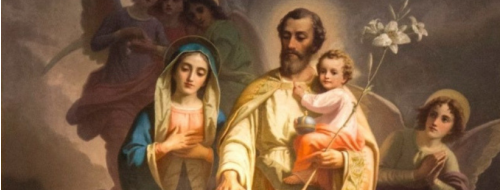 Family Matters
Family Matters
God Commands Fathers
Give ear, O my people, to my law: incline your ears to the words of my mouth. I will open my mouth in a parable: I will utter dark sayings of old: which we have heard and known, and our fathers have told us. We will not hide them from their children, shewing to the generation to come the praises of the Lord and his strength, and his wonderful works that he hath done. For he established a testimony in Jacob, and appointed a law in Israel, which he commanded our fathers, that they should make them known to their children: that the generation to come might know them, even the children which should be born; who should arise and declare them to their children: that they might set their hope in God, and not forget the works of God, but keep his commandments. Psalm 78:1-7
God's plan to propagate the faith focuses heavily on the fathers. They are to teach the mighty works of God to their children. This is clearly spelled out in the text that we see in Psalms 78:1-7. Then their children will rise up and teach the mighty works of God to the next generation, and on an on it goes. I am not talking about just passing on religion to the next generation but also a living, breathing, vibrant Christian faith. That generation then can rise up in their faith and pass the same living, breathing, vibrant Christian faith to the next generation. This is God's plan for propagating the faith, and the responsibility to do this is given to the fathers. You may get a little weary of me stating this, but it is the father's responsibility. Yes, God has given you a help-meet. You wives do need to learn how to be a help-meet to your husbands in this task. We will see clearly, as we proceed through many scriptures, that God and His Church addresses the fathers. I pray for you fathers. You need big shoulders to bear the load of teaching that will come your way. The father is the head of the home. God has placed him there and designed him to carry the load. The responsibility lies heaviest upon him, and God looks to him when there is a failure.
A Four Generation Vision
Now let's look more specifically at Psalms 78:1-7. In verses five and six we see a beautiful picture of four generations. It says, He commanded our fathers,” That's one generation. “That they should make them known to their children,” That's the second generation. “That the generation to come might know them, even the children which should be born,” That's the third generation. “Who should arise and declare them to their children.” That's the fourth generation. What a beautiful picture! The wording is a little difficult to follow, and it may be referring to only three generations. Either way, we can see the extending nature of God's vision and command.
These verses, as well as others we will study place the focus of the father on at least two generations He is t turn his attention primarily on hi own children. However, as he is training them, his sights also are looking ahead to the children that will be born to his children, and even to their children's children. His heart must be seeing and saying, “I need to so train my children that they will rise up and train the ones to come.” The dedicated fathers in Israel followed these precepts, and those who did received the reward of Godly generations, just as God said. When God gives a command, He has in mind that it will bring results. The Bible has examples of families who had this kind of results.
Next month, lets look at some of these examples.


Books to feed your faith!

The Devil
$7.95
“Now, dear readers, we must conclude. The misfortune of most men is that they know not how to conclude. They hear a discourse, they read a book, and go to their business, or their pleasures without having asked themselves: 'What is the result of this is relation to my personal conduct?'” With these words in mind, we can begin a study of The Enemy, the Devil, and more importantly how to combat him. Did we not promise to renounce Satan and all of his works and pomps at our Baptism? “The question of the Devil is not one of mere curiosity. The question is of a living enemy, powerful, present, dangerous, furious. You are reminded that he has caused the ruin of a multitude of your fellow-beings. You are warned, in particular, to avoid dark associations, inspired by him, mysterious operations. …” Saint Paul says our wrestling is against principalities and powers. The subject of the Devil is not one of mere curiosity, but an extremely serious issue. It is indeed a Heaven or Hell question. We are given the reason we need to study our adversary, the Devil: “…Ignorance is not excusable, when instruction is to be had; and heedlessness is very unreasonable, when there is question of your immortal soul.” Indeed ignorance of the Faith is cited by the holy Cure of Ars, Saint John Vianney as a serious problem and why most Catholics are damned. Reading good books is essential to overcome this ignorance. We are given some excellent advice on how to fight our adversary: “When flight is impossible, fight. Avoid more carefully even those trivial faults which make the Devil bolder and stronger against you; avoid, especially, mortal sin, which would deliver your soul to him. Never sleep, if you possibly can, in the captivity of Satan. Be on your guard against the love of riches, which fills his nets; the love of pleasure, which leads to idolatry; and pride, the father of all errors. … Watch, pray. Soon you shall repose in the triumphant peace of heaven.” This book sites Sacred Scripture: “And the Lord God said to the serpent: Because thou hast done this thing, thou art cursed among all cattle, and beasts of the earth. Upon thy breast shalt thou go, and earth shalt thou eat all the days of thy life. I will put enmities between thee and the woman, and thy seed and her seed: she (Mary) shall crush thy head, and thou shalt lie in wait for her heel. (Genesis 3:14-15)” Let us never forget Mary's role in our fight against the Devil. Indeed, in the end of this fight her Immaculate Heart will triumph.
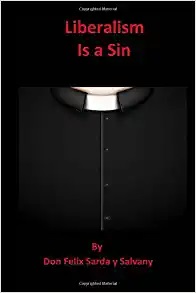
DEVOTION to our Blessed Lady has been so long established among the faithful and is so universally known and practised, that any explanation on my part is unnecessary and superfluous. The compiler and translator has been induced to think that he would render a service to religion, and at the same time pay a tribute of devotion to the Mother of God, by presenting this old work in a new English dress. That this little book may promote and foster among the faithful deep and heartfelt devotion to the Blessed Virgin Mary. As a woman was instrumental in the fall of man, it was the will of God that a woman should co-operate in man's redemption. During forty centuries the Lord, in the language of Isaias, observed attentively the illustrious women who from time to time appeared, in order to choose her who should be most worthy of himself and best adapted to the plan of the redemption of man. Sara presented herself in the splendor of her wealth, Rebecca in the lustre of her beauty, and Rachel in the elegance of her grace; but their wealth, beauty, and grace had no attractions for the Most High. Ruth, Jahel and Judith, Abigail and Esther, appeared in succession; but none of these was chosen. They were all figures of that exalted maiden in whom the virtues and worth of each and all of them were to be united. Who then will be that illustrious woman foretold by the prophets, longed for by the patriarchs, foreshown from the earliest days in symbols and figures so numerous and so various, and promised by the Almighty from the beginning? ,Lovely daughter of JoachiIn and Anne, thou art the chosen one! Although many maidens have arrayed themselves in garments of glory, Mary far surpasses them in abundance of merit and fulness and richness of reward. Mary, as well in the order of nature as in the order of grace and glory, far excels all women, all just souls, and even all angelic beings united; for she alone attracted the especial preference of Almighty God, and was selected by him to be the mother of his Son, and thus to cooperate in our redemption. Wishing to consecrate to the honor of Our Lady the month of May, we shall commence our exercises of piety by considering the principal motives which urge us, as Christians, to pay to her the tribute of our devotion. The first is because amongst all created beings she is adorned with transcendent sanctity, the second because she is the mother of God and also our mother.
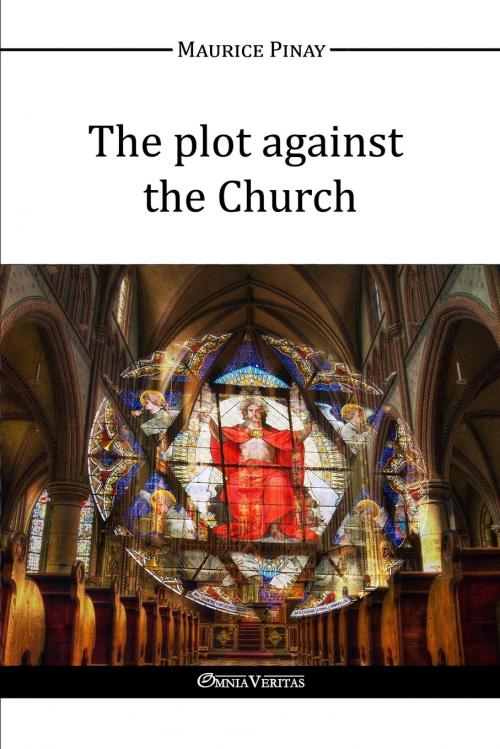
The Plot Against The Church
$30.00
It can be stated without fear of exaggeration that no book in the present century has been the object of so many commentaries in the world press... What gives this book definite, provable worth is that it deals with a magnificent and imposing compilation of documents and sources of undeniable importance and authenticity, which demonstrates with no room for doubt the existence of a great conspiracy, which the traditional enemies of the Church have prepared against Holy Catholic Church, and against the Free World. These (enemies) are attempting to convert Catholicism into a blind instrument in the service of communism, Masonry, and Judaism, in order to weaken free humanity with it and to facilitate its ruin and, with this ruin, the definite victory of atheistic communism. The most useful instruments in this conspiracy are those Catholic clergymen who, betraying Holy Church, attempt to destroy her most loyal defenders, while at the same time they assist, in every way they can, Communists, Masons and Jews in their subversive activities. In the pages, in the arguments, and in the style of the book, is revealed the presence of Catholic clerics, in battle against the eternal heresy, which has always tended to subvert the religious, ethical, and historical bases of Catholicism, employing successively Simon the Magician, Arius, Nestor, the Albigenses, and in the present day the leftists of the Ecumenical Council.
Will the Real Catholic Church Stand Up?
Kindle $2.99 / Paperback $9.95
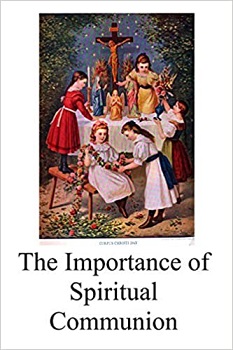
The Importance of Spiritual Communion
Kindle $2.99 / Paperback $5.99
If we cannot receive Holy Communion actually, then let us do so spiritually. These prayers and instructions have been gathered from the Saints and other venerated spiritual writers. Spiritual Communion has been a part of the spiritual life for decades. Growing up I was instructed to make a Spiritual Communion, when I could not go to Communion such as when I assisted at a second Mass. The same is true if one finds oneself at Mass, but not fasting. There are times coming, when it will be difficult, if not impossible to assist at the Holy Sacrifice of the Mass. We should be prepared for such times.
For More Good Traditional Catholic Books:

Old Biff's Beef Enchiladas

Ingredients
2 pounds ground beef
¼ medium onion, finely chopped
1 cup shredded Cheddar cheese
½ cup sour cream
1 tablespoon dried parsley
1 tablespoon taco seasoning
1 teaspoon dried oregano
½ teaspoon ground black pepper
2 ½ cups enchilada sauce
1 ½ teaspoons chili powder
1 clove garlic, minced
½ teaspoon salt
8 flour tortillas
1 (15 ounce) can black beans, rinsed and drained
1 (4 ounce) can sliced black olives, drained
¼ cup shredded Cheddar cheese
Directions
1 Preheat oven to 350 degrees F (175 degrees C).
2 Cook and stir ground beef with onion in a skillet over medium heat until meat is crumbly and no longer pink, about 10 minutes. Drain grease. Stir 1 cup Cheddar cheese, sour cream, parsley, taco seasoning, oregano, and black pepper into the ground beef until cheese has melted. Mix in enchilada sauce, chili powder, garlic, and salt; bring to a simmer, reduce heat to low, and simmer until meat sauce is slightly thickened, about 5 minutes.
3 Lay a tortilla onto a work surface and spoon about 1/4 cup of meat sauce down the center of the tortilla. Top meat sauce with 1 tablespoon black beans and a sprinkling of black olives. Roll the tortilla up, enclosing the filling, and lay seam-side down into a 9x13-inch baking dish. Repeat with remaining tortillas. Spoon any remaining meat sauce over the enchiladas and scatter any remaining black beans and black olives over the top. Sprinkle tortillas with 1/4 cup Cheddar cheese.
4 Bake in the preheated oven until cheese topping is melted and enchiladas and sauce are bubbling, 20 to 22 minutes. Let stand 5 minutes before serving.
Marinated Cucumber, Onion, and Tomato Salad
Ingredients
1 cup water
½ cup distilled white vinegar
¼ cup vegetable oil
¼ cup sugar
1 teaspoon salt, or to taste
1 teaspoon freshly ground black pepper, or to taste
3 cucumbers, peeled and sliced 1/4-inch thick
3 tomatoes, cut into wedges
1 onion, sliced and separated into rings
Directions
1. Whisk water, vinegar, oil, sugar, salt, and pepper together in a large bowl until smooth; add cucumbers, tomatoes, and onion and stir to coat.
2. Cover bowl with plastic wrap; refrigerate for at least 2 hours.
Video sermons and instructions: Timeless timely truths for living the Faith
Pentecost 2011
Pentecost 2012
Trinity Sunday 2013
Sacred Moments - Trust And Obey

Encouragement for Today
Therefore encourage one another and build one another up.... I Thessalonians 5:11
We believe that through our assorted podcasts, Vlogs, audio downloads and devotional blogs, you will find an assorted Treasure Chest of...
- Sermons
- Classic Catholic Audio Books.
- Devotionals
- Scripture Studies
- Catechism Lessons
- Old-Time Christian radio programs
- Catholic Videos
...that will be a help in your faithful walk with the Lord.
LEARN MORE AT THE ENCOURAGEMENT FOR TODAY WEBSITE: https://www.encouragementfortoday.com
Truths From Genesis 1:1

Who Made God?
Some people say, “But surely somehow God had to have a beginning.” I've often had children ask me, “Who made God?'
Let's think through this very carefully. Consider a watch. Did someone make the watch? Of course! A watchmaker made the watch. A watch could not come into existence by itself. Now, is the watch more intelligent and greater than the watchmaker? No! The watchmaker is greater than the watch. We know someone had to make the watch- the watchmaker. Yet , the watchmaker is greater than the watch. So who made the watchmaker? Someone greater than the watchmaker. The Bible tells us that this someone is God.
If someone made God, who would that be? A super God. And who made the super God? A super, super God! And who made the super, super God? A super, super, super God! We would always have to have someone bigger to make someone. This doesn't make sense. It means there must be someone who is the biggest of all. And that's the infinite God!
The Creator God of the Bible exists in eternity, and the Church teaches us He is:
Omnipotent (this means He is all-powerful): “For nothing will be impossible with God.” (Luke 1:37)
Omniscient (this means He is all-knowing): “In whom are hid all the treasures of wisdom and knowledge.” (Colossians 2:3)
Omnipresent (this means He is everywhere at once): The eyes of the Lord are in every place behold the good and the evil. (Proverbs 15:3).
The word we used to describe God is “infinite.” This word means “without end or limit-greater than any amount we could number.” If God always exists, and no one made God, then it means His knowledge is infinite. It means His power is infinite. It means His knowledge is infinite. It means His understanding is infinite. It means His wisdom is infinite. It means God had no beginning-He is always there- He is the great I AM. He is the infinite Creator. He knows everything there is to know, and has all power, all wisdom, and all understanding. Everything about God is infinite. His love for us must be infinite. He must be infinitely good. If it was possible, we could say an infinite number of things about God – but then these articles would be infinitely long, and no one would be able to finish reading them!
As we read the scriptures, remember we are just finite beings. We need to let God, who is infinite, tell us from His Word and through His Church what he wants us to know. We must never take our ideas to God's Word and try to make it say what we want it to say.
Another way to understand our finiteness is to think about our education. We have to learn to read and write, and then perhaps go to college, and earn a qualification so we can be a tradesman, scientist, doctor, or teacher, for instance. But God never had to learn anything. He has always known everything. Everything we take a lifetime to learn He knows anyway, and He never has to learn anything more, because there is nothing more for Him to learn. He knows it all.
The Hebrew word for God in Genesis 1:1 means God is one but more than one. We learn in the Bible that God is one but three at the same time. Now while there is one being of God, all three members of the Trinity are distinct persons. The three are God the Father, God the Son, and God the Holy Spirit! We use a word to describe the fact that God is one but three-Trinity
Many times in the Bible we read that God is the Creator, but we also read that Jesus created all things. Colossians 1:16 teaches us that Jesus is the second member of the Trinity and later in the same epistle we read that: For in him dwelleth all the fulness of the Godhead bodily (Colossians 2:9). In Colossians 2:3, we are told about Jesus that it is He “in whom are hid all the treasures of wisdom and knowledge.” Jesus, who is God, knows everything He is infinite. In other words, Jesus is God.
The third member of the trinity is the Holy Spirit: The grace of our Lord Jesus Christ, and the charity of God, and the communication that is the fellowship of the Holy Ghost be with you all. (2 Corinthians 13:14)
Catechism Catch-Up
Confirmation-The Seven Fold Grace of God -Fortitude

In the Catechism of the Council of Trent we read: Quote “In Confirmation is contained the true and proper nature of a Sacrament has always been acknowledged by the Catholic Church.” the Catechism goes on to say, “The truth of this doctrine St. Clement could not confirm in stronger terms than when he says, 'All should hasten without delay to be born again (baptized) unto God, and afterwards to be signed (confirmed) by the Bishop.” that is to receive the seven fold grace of the Holy Ghost; for, as has been handed down to us from St. Peter, and as the other Apostles taught in obedience to the command of Our Lord, he who culpably and voluntarily, and not from necessity, neglects to receive this Sacrament, cannot possibly be a perfect Christian.' To be a perfect and complete Christian one needs to be sealed at the day of their confirmation with the seven fold grace of the Holy Ghost.”
What is the seven fold grace of the Holy Ghost? And what is it used for in our Christian life?
The seven fold grace of the Holy Spirit that, initially, is magnified in us at our confirmation, and has unique skills and abilities given by the Holy Spirit, to faithful followers of Christ, to serve God for the common benefit of his people, the Church, and for reaching others, out side of the Church, for Christ. The seven fold grace, referred to by the Catechism, is described in Isaiah 11:1-3, where it mentions wisdom, understanding, counsel, fortitude, knowledge, and Piety and the fear of the Lord.
The seven fold grace of the Spirit, mentioned in Isaiah, are simply God empowering faithful Christians to do what He has called us to do.
The Catholic Church list them as:
1.Wisdom
2. Understanding
3. Counsel
4. Fortitude
5. Knowledge
6. Piety -Godliness
7. Fear of the Lord
In our last lesson we discussed one of the parts of the seven fold gift of the Holy Ghost called Counseling. And we said, that simply put, this gift, as it is called in the Bible, is defined as- To give advice or deliberate opinion to another. To exhort, warn, admonish, or instruct. To recommend.
Understand that everyone is given the seven fold graces at our baptism. But what our confirmation does is enhance certain ones in our lives and it is different for everyone. Romans 12:4-8, says “For as in one body we have many members, but all the members have not the same office: So we being many, are one body in Christ, and every one members one of another. And having different gifts, according to the grace that is given us....” One of those gifts or graces that is mentioned in the Douay Rheims version of the bible is carefulness, or as in other versions, diligence, which in Isaiah 11:1-3, otherwise uses the word fortitude.
Now Concerning the grace of fortitude sometimes called endurance:
Fortitude is the inward strength to withstand stress to accomplish God’s best. Fortitude is associated with the physical stamina required for a race. However, the character quality of Fortitude is much deeper than physical stamina. It includes the strength that comes by rejoicing in the reproaches that come as we follow the ways of God.
It is described as, “to undergo hardship, to hold oneself up against, to put up with to endure with patience.”
To have fortitude is to tenaciously hold on until a goal is accomplished. Jacob clung to the angel and declared, “I will not let thee go except thou bless me.” God not only blessed him but affirmed, “Thy name shall not be called Jacob, but Israel: for if thou hast been strong against God, how much more shalt thou prevail against men?” (Genesis 32:28).
What Are We to Endure?
The following passages explain the types of trials we are to endure:
- Endure hardness—“Thou therefore endure hardness, as a good soldier of Christ Jesus” (II Timothy 2:3).
- Endure in all things—“But be thou vigilant, endure in all things...” (II Timothy 4:5). “Therefore I endure all things for the sake of the elect, that they also may obtain the salvation, which is in Christ Jesus, with heavenly glory.” (II Timothy 2:10).
- Endure persecutions and tribulations—“… that you may be counted worthy of the kingdom of God, for which also you suffer. ” (II Thessalonians 1:5).
- Endure undeserved suffering—“For this is thankworthy, if for conscience towards God, a man endure sorrows, suffering wrongfully.” (I Peter 2:19).
- Endure chastening—“Persevere under discipline. God dealeth with you as with his sons; for what son is there, whom the father doth not correct? ” (Hebrews 12:7).
- Endure temptations—“Blessed is the man that endureth temptation; for when he hath been proved, he shall receive a crown of life, which God hath promised to them that love him. ” (James 1:12).
How Do We Endure?
Endurance is based on hope. A runner will endure rigorous and painful training because of the hope that he will win the race. Jesus endured the cross and despised the shame associated with it for the joy of knowing that His death would conquer Satan and bring redemption to mankind for all eternity. (See Hebrews 12:2.) The believer’s hope is that by enduring trials he will experience a greater measure of spiritual power in this life, as well as rewards in heaven.
How Does Truth Motivate Endurance?
Truth sets us free from the destructive attitudes and influences that diminish endurance. When trials and temptations come, we are to meet and endure them with the following four responses:
- Thank God for each trial.
We can be thankful for all things, because all things come from the hand of God. They are for our benefit and can teach us character. They also “work together unto good, to such as, according to his purpose, are called to be saints.” (Romans 8:28). Job endured a great affliction, and he understood this important point: “The Lord gave, and the Lord hath taken away: as it hath pleased the Lord so is it done: blessed be the name of the Lord.” (Job 1:21)
2. Rejoice in all things.
Once we recognize the benefits that God intends through our trials, we can rejoice in them. If we lack wisdom to discern these benefits, we can ask God for it and He will give it to us. (See James 1:5)
3. Cry out when necessary.
Some situations cannot or should not be endured and require us to cry out to God for deliverance. “And call upon me in the day of trouble: I will deliver thee, and thou shalt glorify me.” (Psalm 50:15).
4. Overcome by doing good.
“Be not overcome by evil, but overcome evil by good.” (Romans 12:21).
Personal Evaluation: How Strong Is Your Fortification?
- Do you live as a soldier who is in the most critical spiritual war ever waged, or as a civilian in a time of peace, prosperity, and pleasure?
- Do you rejoice when rejected by those who do not follow the ways of God, or do you complain that you have to suffer because of your identification with God?
- Do you rejoice in being falsely accused and blamed for things you did not do, or do you become reactionary, defensive, and bitter toward those who question your integrity?
- Do you accept God’s chastening for things you have done wrong, or do you become discouraged and want to give up on the Christian life?
- Do you resist temptation and bring every thought into captivity, or do you easily surrender to the lusts of the flesh and the lusts of the mind?
I pray that our lesson today on gives you deep thoughts about the Gift of Fortitude from the Spirit of the Lord. the basic point I want us to get about the Gift of Fortitude from the Spirit of the Lord is this-God wants us to look to Him for what we cannot do ourselves.
Let us pray. Father, I repent of all my sins. Forgive me Lord. I trust you Lord. Help me, your child, as you have helped many. Rest the gift of fortitude on me so that I can stand against all evil that try to weaken me. As your child, I do not want to be spineless in your ways. Spinelessness does not glorify you. In the name of the Father and of the Son and of the Holy Spirit. Amen.
READ MORE FROM THE TRADITIONAL CATECHISM AT THE WEBSITE: https://www.traditionalcatechism.com
Living Catholic:
What Is The Difference Between Logo and Rhema?

Logos—The Word of God
There are two primary Greek words that describe Scripture which are translated word in the New Testament. The first, logos, refers principally to the total inspired Word of God and to Jesus, Who is the living Logos.
Biblical Examples of Logos
The following passages of Scripture give examples of the logos of God:
-
“In the beginning was the Word [logos], and the Word [logos] was with God, and the Word [logos] was God” (John 1:1).
-
“The seed is the word [logos] of God” (Luke 8:11).
-
“Holding forth the word [logos] of life” (Philippians 2:16).
-
“Carefully study to present thyself approved unto God, a workman that needeth not to be ashamed, rightly handling the word [logos] of truth. ” (II Timothy 2:15).
-
“For the word [logos] of God is living and effectual, and more piercing than any two edged sword ” (Hebrews 4:12).
-
“Being born again, not of corruptible seed, but of incorruptible, by the word [logos] of God, which liveth and remaiineth forever” (I Peter 1:23).
Rhema—The Spoken Word
The second primary Greek word that describes Scripture is rhema, which refers to a word that is spoken and means “an utterance.” In the written word, [logos] the rhema is God's logos communicated by word [rhema] of mouth.
Every word of God is inspired, and “All scripture, inspired of God, is profitable to teach, to reprove, to correct, to instruct in justice” (II Timothy 3:16). It is the Holy Spirit, Who through the spoken word or the written word, illuminates particular Scriptures for application in a daily walk with the Lord.
The words of Jesus are significant on this point. “Not in bread alone doth man live, but in every word [rhema] that proceedeth from the mouth of God.” (Matthew 4:4). Jesus also stated, “The words [rhema] that I speak unto you, they are spirit, and they are life” (John 6:63).
When God gives a rhema for us to act upon, He confirms it by a second rhema, that “In the mouth of two or three witnesses shall every word [rhema] stand.” (II Corinthians 13:1).
Hence, the spoken word is confirmed by the witness of Apostolic Tradition (anything the apostles authoritatively passed down to the Church, whether written [logos] or spoken [rhema] ).
Biblical Insights Into Rhemas
The following passages of Scripture provide insight into the rhemas of God:
-
“So then faith cometh by hearing, and hearing by the word [rhema] of Christ” (Romans 10:17).
-
“And take the helmet of salvation, and the sword of the Spirit, which is the word [rhema] of God” (Ephesians 6:17).
-
“Husbands, love your wives, even as Christ also loved the church, and gave himself for it; That he might sanctify and cleanse it by the laver of water in the word [rhema] of life: ” (Ephesians 5:25–26).
-
“If ye abide in me, and my words [rhema] abide in you, ye shall ask whatever ye will, and it shall be done unto you” (John 15:7).
Biblical Examples of Rhemas
The following passages of Scripture give examples of the rhemas of God:
-
Under the high priests Annas and Caiphas; the word [rhema] of the Lord was made unto John, the son of Zachary, in the desert. (Luke 3:2).
-
But if you do not believe Moses writings, how will you believe my words [rhema]? ” (John 5:47).
-
Simeon recalled the promise that he would see Christ before he died: “Now lettest thou thy servant depart in peace, according to thy word [rhema]” (Luke 2:29).
-
God gave John the message he was to preach as a forerunner to Christ: “The word [rhema] of God came unto John” (Luke 3:2).
-
It is the spirit that quickeneth: the flesh profiteth nothing. The words [rhemas] that I have spoken to you, are spirit and life. [John 6:63].
-
Who being the brightness of his glory, and the figure of his substance, and upholding all things by the word of his power, making purgation of sins, sitteth on the right hand of the majesty on high. (Hebrews 1:3).
Scripture and Apostolic Tradition, (teachings that the apostles passed on orally through their preaching and teaching.-rhema) are important because anything the apostles authoritatively passed down to the Church, whether written or not, is inerrant. As one Catechism states: “There exists a close connection and communication between sacred Tradition and sacred Scripture. For both of them, flowing from the same divine wellspring, in a certain way merge into a unity and tend toward the same end. For sacred Scripture is the word of God inasmuch as it is consigned to writing under the inspiration of the divine Spirit. To the successors of the apostles, sacred Tradition hands on in its full purity God’s word, which was entrusted to the apostles by Christ the Lord and the Holy Spirit. Thus, by the light of the Spirit of truth, these successors can in their preaching preserve this word of God faithfully, explain it, and make it more widely known. Consequently it is not from sacred Scripture alone that the Church draws her certainty about everything which has been revealed. Therefore both sacred Tradition and sacred Scripture are to be accepted and venerated with the same devotion and reverence.”
To Learn More Principles For Life Go To: Resources: Principles of Life

Enjoying the Olive Tree? Why not subscribe today? Click here to go to the FREE scubscription page!


Pray for the Holy Father! Pray with the Holy Father!
- Your prayers are asked this month and every month for the intentions of the Holy Father, Pope Michael.
- Please pray for the success and growth of the new Chrysostom Bible Institute. Check out the wonderful work it is doing and see how you can get involved!
- Your prayers and support are asked in a special way for the soon to be established House of Prayer.
- Pray especially that the Holy Ghost inspires and helps us prepare spiritual manuals and days of recollection to make available to all.
- Keep in your prayers our Podcast Ministry, a new way to reach out in the missionary work of the Church! We ask for prayers for our other activities world wide. We have made good contacts in the Philippines and Japan and ask prayers that these contacts will bear much fruit for the salvation of souls.
- Be sure to keep St. Helen Catholic Mission in your prayers. Why not go on over to the site now and see what they have to offer and how you might be able to help!
- Also we ask you to keep in prayer our increasing missionary work in the United States and elsewhere.
- Pray for those outside the Church and those who do not know God, that they may see the light of grace and be led safely home to the refuge of the Holy Catholic Church.
- As always, we also ask that you pray for yourself! Never forget your own state of soul. God is calling you to His service in His love. We know that our Lord can count on you to answer.
- We are all praying especially for you, too. May you correspond with every grace of God!
- In what other needs or intentions may we pray for you? Let us know!
- Let us remember that the Church runs on prayer. Without your prayers, God will not work in hearts and souls to bring them to a knowledge of the truth. (I Timothy 2:4)


To Donate online go to:

To Donate by Mail:
Our address is
Vatican in Exile
829 NE Chester
Topeka, Kansas 66616
Make Checks payable to:
Vatican in Exile


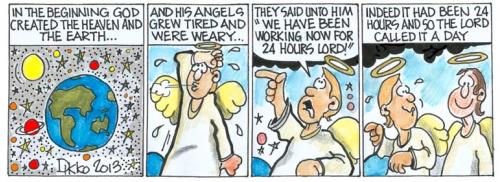


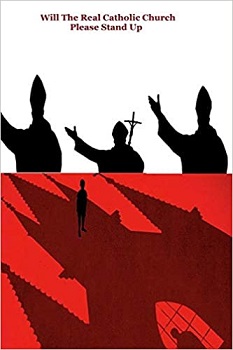










 Follow
Follow


